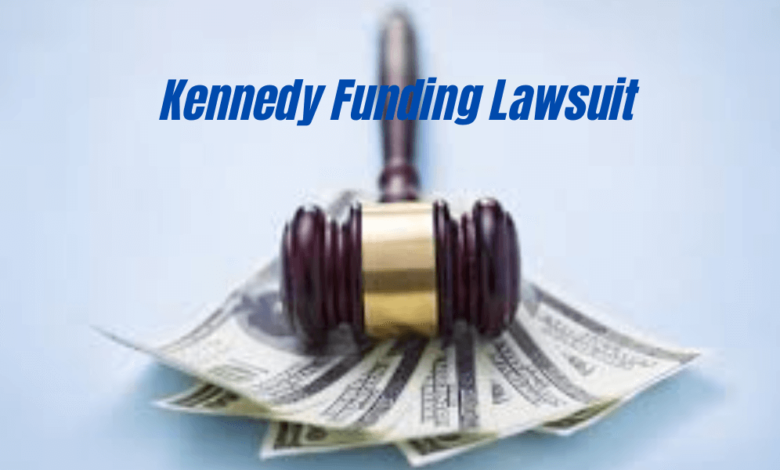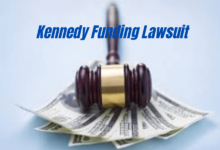Understanding the Kennedy Funding Lawsuit: Key Facts and Implications

The Kennedy Funding lawsuit involves significant financial and legal questions within the world of private lending. Kennedy Funding, a New Jersey-based private lender, is known for providing short-term bridge loans to borrowers who may not qualify for traditional financing options. The company has gained attention over the years for its aggressive loan terms and foreclosure practices. The lawsuit against Kennedy Funding highlights the complexities and risks associated with high-interest bridge loans, and understanding the specifics of the case offers insights into the challenges that borrowers face when dealing with private lenders.
Background on Kennedy Funding and Its Business Model
Kennedy Funding operates as a private, hard-money lender specializing in high-interest, short-term bridge loans for borrowers in need of quick access to capital. These loans typically feature higher interest rates, shorter repayment periods, and flexible underwriting criteria, making them a solution for borrowers who might not qualify for conventional bank loans. Their target market often includes real estate developers, businesses in need of capital, or distressed borrowers facing foreclosure. However, the company’s rapid-approval process and high-interest structure have led to multiple disputes with borrowers over repayment, foreclosure, and loan terms.
What Led to the Kennedy Funding Lawsuit?
The Kennedy Funding lawsuit revolves around allegations by a group of borrowers who claim that the lender engaged in predatory lending practices, excessive interest rates, and other unfair loan terms. Borrowers argue that Kennedy Funding:
- Imposed Excessive Interest Rates and Penalties: Borrowers allege that Kennedy Funding’s interest rates and penalty fees were excessively high, often reaching beyond what many considered reasonable or manageable.
- Employed Aggressive Foreclosure Practices: Kennedy Funding’s foreclosure practices have been cited as overly aggressive, particularly in cases where borrowers missed payments due to short-term financial hardship. According to the lawsuit, Kennedy Funding would initiate foreclosure proceedings quickly after missed payments, making it difficult for borrowers to recover.
- Engaged in Questionable Contractual Practices: Borrowers argue that the loan agreements were designed to be convoluted and confusing, with terms that favored the lender, including clauses that allowed Kennedy Funding to raise interest rates unexpectedly or impose additional fees without sufficient disclosure.
Key Legal Issues in the Lawsuit
The lawsuit against Kennedy Funding touches on several important legal issues within the realm of finance and contract law:
- Predatory Lending: This legal term refers to unfair and abusive loan practices, typically involving high-interest loans and unfair terms targeting vulnerable borrowers. Plaintiffs in this case argue that Kennedy Funding’s high-interest bridge loans were structured to trap borrowers in debt rather than offering them a viable financing solution.
- Breach of Contract: Plaintiffs allege that Kennedy Funding breached the terms of their loan agreements by changing terms without adequate notice, raising interest rates, or imposing unexpected fees. Breach of contract claims in financial cases often focus on whether the terms were disclosed clearly and whether they were adjusted or applied in a way that violates the borrower’s rights.
- Unconscionability: This legal principle applies when a contract or its terms are deemed to be so one-sided that they are unfair or unjust. The plaintiffs claim that Kennedy Funding’s loan agreements were unconscionable due to unclear language, overly complex terms, and the lack of borrower protection.
The Defense’s Position: Kennedy Funding’s Response
Kennedy Funding has responded to the lawsuit by defending its lending practices as standard within the industry. In their defense, Kennedy Funding argues:
- Full Disclosure of Terms: Kennedy Funding contends that it disclosed all loan terms to borrowers and that they entered into these agreements with full understanding. The defense claims that the borrowers were fully aware of the interest rates, repayment terms, and penalties at the time of signing.
- High-Risk Borrowers: The company argues that many of its clients represent high-risk cases that would not typically qualify for loans from traditional lenders. As a result, Kennedy Funding insists that the higher interest rates and fees are justified given the elevated risk they assume by lending to these individuals and businesses.
- Fair Foreclosure Practices: Kennedy Funding has maintained that its foreclosure practices comply with legal standards and that it only pursues foreclosure when borrowers fail to meet the terms of their agreements. They argue that taking legal action to recover the balance on defaulted loans is a necessary part of the lending business, particularly in high-risk scenarios.
Implications of the Kennedy Funding Lawsuit for the Private Lending Industry
The outcome of the Kennedy Funding lawsuit has potential ramifications for both borrowers and lenders in the private lending industry. Key implications include:
- Increased Scrutiny on Private Lenders: The lawsuit has drawn attention to the practices of private lenders and raised questions about how these companies structure their loans. If the court rules in favor of the plaintiffs, it may lead to stricter regulations or oversight on private lending practices to protect borrowers.
- Potential Precedent for Contractual Terms: If the lawsuit results in a verdict that certain loan terms were unfair or unconscionable, it could set a legal precedent affecting how private lenders structure contracts and disclose terms. This could lead to more stringent requirements for clarity and transparency in loan agreements.
- Greater Borrower Protections: A favorable outcome for the plaintiffs could result in new borrower protections, particularly in cases where borrowers may face steep penalties, high-interest rates, or complex contract terms. This could encourage private lenders to reassess their contract structures to avoid future legal challenges.
Conclusion: A Potential Turning Point in Private Lending Practices?
The Kennedy Funding lawsuit brings to light the legal, financial, and ethical issues in high-interest lending, highlighting the challenges that borrowers face when navigating private financing. For private lenders like Kennedy Funding, this case underscores the importance of transparency, fair practices, and clear contractual terms. The outcome could serve as a turning point for the industry, encouraging lenders to create more borrower-friendly loan structures and promoting a higher standard of ethics in private lending.
FAQs About the Kennedy Funding Lawsuit
1. What is the Kennedy Funding lawsuit about?
The Kennedy Funding lawsuit involves allegations of predatory lending practices by the private lender Kennedy Funding. Borrowers claim that Kennedy Funding charged excessively high interest rates, applied aggressive foreclosure practices, and included unfair terms in their loan agreements. The lawsuit challenges the legality and fairness of these practices.
2. Who is Kennedy Funding?
Kennedy Funding is a private, hard-money lender based in New Jersey. The company specializes in short-term, high-interest bridge loans, often catering to borrowers who need quick capital and may not qualify for traditional bank loans. Their clients typically include real estate developers, high-risk borrowers, and businesses in need of capital.
Also Read: Archivebate: Unveiling the Best Tool for Recording and Saving Webcam Streams
3. What are the main allegations in the lawsuit?
The main allegations include:
- Excessive Interest Rates and Fees: Plaintiffs claim that Kennedy Funding imposed unreasonable interest rates and fees that were difficult for borrowers to manage.
- Aggressive Foreclosure Practices: Borrowers allege that the lender quickly pursued foreclosure actions upon missed payments.
- Unfair Contract Terms: The plaintiffs argue that Kennedy Funding used overly complex contracts with terms that were unclear and unfairly biased in favor of the lender.
4. How has Kennedy Funding responded to the lawsuit?
Kennedy Funding has denied the allegations, stating that:
- All loan terms were fully disclosed to borrowers who understood and accepted them.
- The high-interest rates and fees were justified given the high-risk nature of the loans.
- Their foreclosure practices are legal and necessary to recover unpaid balances on defaulted loans.
5. What legal issues are involved in the Kennedy Funding lawsuit?
The lawsuit touches on several legal issues, including:
- Predatory Lending: This includes loan practices that exploit borrowers with high-interest rates and hidden fees.
- Breach of Contract: The plaintiffs argue that Kennedy Funding breached terms of the agreement by unexpectedly altering terms or imposing additional fees.
- Unconscionability: Plaintiffs claim that the loan terms were so unfairly one-sided that they should be considered unenforceable.
6. Why is this lawsuit important for the private lending industry?
The Kennedy Funding lawsuit has the potential to set new standards and regulations for private lenders. If the court sides with the plaintiffs, it could lead to more oversight, encourage clearer contract terms, and introduce protections for borrowers against predatory practices. This case could change the way private lenders structure and enforce their contracts.
7. What are bridge loans, and why do borrowers choose them?
Bridge loans are short-term loans used to “bridge” gaps in funding, often used by real estate developers or businesses that need fast cash. These loans typically come with higher interest rates and shorter repayment terms, but they offer quick approval and access to capital, which is beneficial to borrowers who may not qualify for traditional financing.
8. What might happen if the court rules against Kennedy Funding?
If the court rules against Kennedy Funding, the decision could:
- Lead to stricter regulations for private lenders.
- Establish legal precedent for “unconscionable” contract terms, affecting future private lending agreements.
- Require Kennedy Funding to compensate plaintiffs or make adjustments to their business practices.
9. What could this mean for borrowers in the future?
A ruling in favor of the plaintiffs could improve protections for borrowers in the private lending market, making it more difficult for lenders to impose high fees, raise interest rates unexpectedly, or use overly complex contract terms. It could lead to greater transparency and fairness in loan agreements across the industry.
10. Is Kennedy Funding the only lender facing this type of lawsuit?
No, Kennedy Funding is not the only private lender facing legal action for alleged predatory lending practices. Many private and hard-money lenders have faced similar allegations, especially in cases where borrowers struggle with high-interest rates and fast foreclosure actions. This lawsuit is part of a broader trend of increased scrutiny on private lending practices.
11. How does this lawsuit affect real estate developers and business borrowers?
Real estate developers and businesses often rely on private loans for quick capital, especially in time-sensitive projects. The outcome of this lawsuit could make private lending safer and more transparent for these borrowers, potentially resulting in fairer loan terms and more borrower protections in the private lending space.
12. When will there be a resolution in the Kennedy Funding lawsuit?
Lawsuits of this nature can take years to resolve, as both sides gather evidence, file motions, and possibly enter settlement negotiations. A resolution could come in the form of a court judgment or a settlement agreement, depending on how the case progresses.
13. How can borrowers protect themselves from predatory lending?
Borrowers can protect themselves by:
- Carefully reviewing and understanding all loan terms, especially interest rates, fees, and penalties.
- Consulting with a legal or financial advisor to ensure they understand the implications of the loan terms.
- Considering alternative financing options and avoiding loans with terms that seem unclear or too aggressive.
